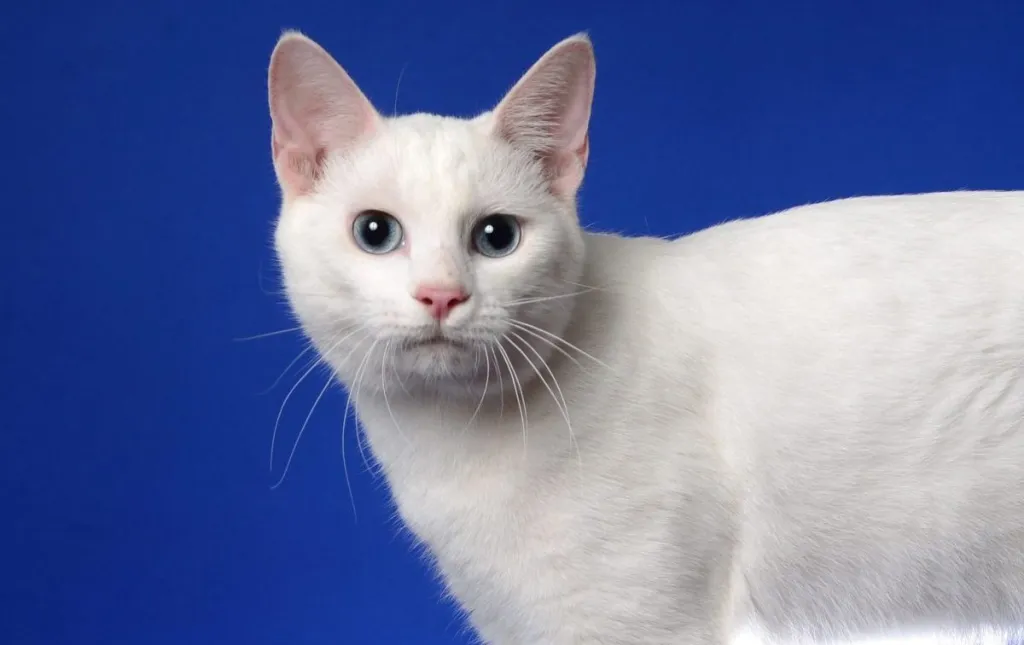Table of Contents
The Japanese Bobtail cat is a delightful breed known for its playful personality, unique bobbed tail, and striking appearance. Proper care is crucial to ensure these cats remain healthy and happy. This guide on care needs for the Japanese Bobtail cat provides essential tips to help you take excellent care of your feline friend.

Understanding the Japanese Bobtail
The Japanese Bobtail is a friendly, intelligent, and active breed. They are known for their sociable nature and love of human companionship. Understanding their personality and needs is the first step in providing proper care.
1. Proper Nutrition
A balanced diet is essential for the health of your Japanese Bobtail. Provide high-quality commercial cat food that meets their nutritional needs. Look for foods rich in protein, vitamins, and minerals. Avoid overfeeding to prevent obesity. Consult your veterinarian for specific dietary recommendations tailored to your cat’s age, weight, and health status. For more on cat nutrition, visit Cornell Feline Health Center Nutrition Guide.
2. Regular Grooming
Japanese Bobtails have a soft, silky coat that requires minimal grooming. Brush your cat’s coat weekly to remove loose hairs and prevent matting. During shedding seasons, increase the frequency of brushing to reduce hairballs. Regular grooming also helps you check for skin issues or parasites. For more on grooming, visit PetMD Cat Grooming Tips.
3. Dental Care
Dental hygiene is important for your Japanese Bobtail’s overall health. Brush your cat’s teeth several times a week using a cat-specific toothbrush and toothpaste. Regular dental care helps prevent tartar buildup, gum disease, and bad breath. Dental chews and toys can also aid in maintaining oral hygiene. For more on dental care, visit PetMD Dental Care Guide.
4. Exercise and Enrichment
Japanese Bobtails are active and playful cats that require regular exercise and mental stimulation. Provide toys, scratching posts, and climbing structures to keep them entertained. Interactive play sessions help strengthen your bond and keep your cat physically fit. For more on exercise and enrichment, see The Spruce Pets Enrichment Tips.
5. Health Checkups
Regular veterinary checkups are essential for detecting and preventing health issues. Schedule annual wellness exams to monitor your cat’s health, update vaccinations, and discuss any concerns with your veterinarian. Early detection of health problems can lead to more effective treatment. For more on health checkups, visit Cornell Routine Health Care.
6. Litter Box Maintenance
Keep your Japanese Bobtail’s litter box clean to encourage good hygiene habits. Scoop the litter box daily and change the litter regularly. Clean the litter box with mild soap and water every few weeks. A clean litter box helps prevent urinary tract infections and ensures your cat’s comfort. For more on litter box maintenance, see The Spruce Pets Litter Box Care.
7. Social Interaction
Japanese Bobtails thrive on social interaction and enjoy being around their human companions. Spend quality time with your cat daily, engaging in play and providing affection. Social interaction helps prevent boredom and behavioral issues, ensuring your cat remains happy and well-adjusted. For more on social interaction, visit Petfinder Keeping Your Cat Happy.
Conclusion on Care Needs for the Japanese Bobtail Cat
Understanding the care needs for the Japanese Bobtail cat is essential for raising a healthy, happy, and well-adjusted pet. By providing proper nutrition, regular grooming, dental care, exercise, and social interaction, you can ensure your Japanese Bobtail thrives. Regular veterinary checkups and litter box maintenance are also crucial for their overall well-being. For more pet care tips, check out our Pet Care Guide.
FAQs on Care Needs for the Japanese Bobtail Cat
What is the best diet for a Japanese Bobtail cat?
A balanced diet with high-quality commercial cat food rich in protein, vitamins, and minerals is best. Consult your veterinarian for specific dietary recommendations.
How often should I groom my Japanese Bobtail cat?
Brush your Japanese Bobtail’s coat weekly, and more frequently during shedding seasons to prevent matting and reduce hairballs.
How can I keep my Japanese Bobtail’s teeth clean?
Brush your cat’s teeth several times a week using cat-specific toothpaste and a toothbrush. Dental chews and toys can also help maintain oral hygiene.
What kind of exercise does a Japanese Bobtail need?
Provide toys, scratching posts, and climbing structures for physical exercise. Engage in interactive play sessions to keep your cat mentally stimulated and physically fit.
How often should I take my Japanese Bobtail to the vet?
Schedule annual veterinary checkups to monitor your cat’s health, update vaccinations, and discuss any concerns with your veterinarian.
How can I maintain a clean litter box for my Japanese Bobtail?
Scoop the litter box daily, change the litter regularly, and clean the box with mild soap and water every few weeks to prevent infections and ensure your cat’s comfort.











